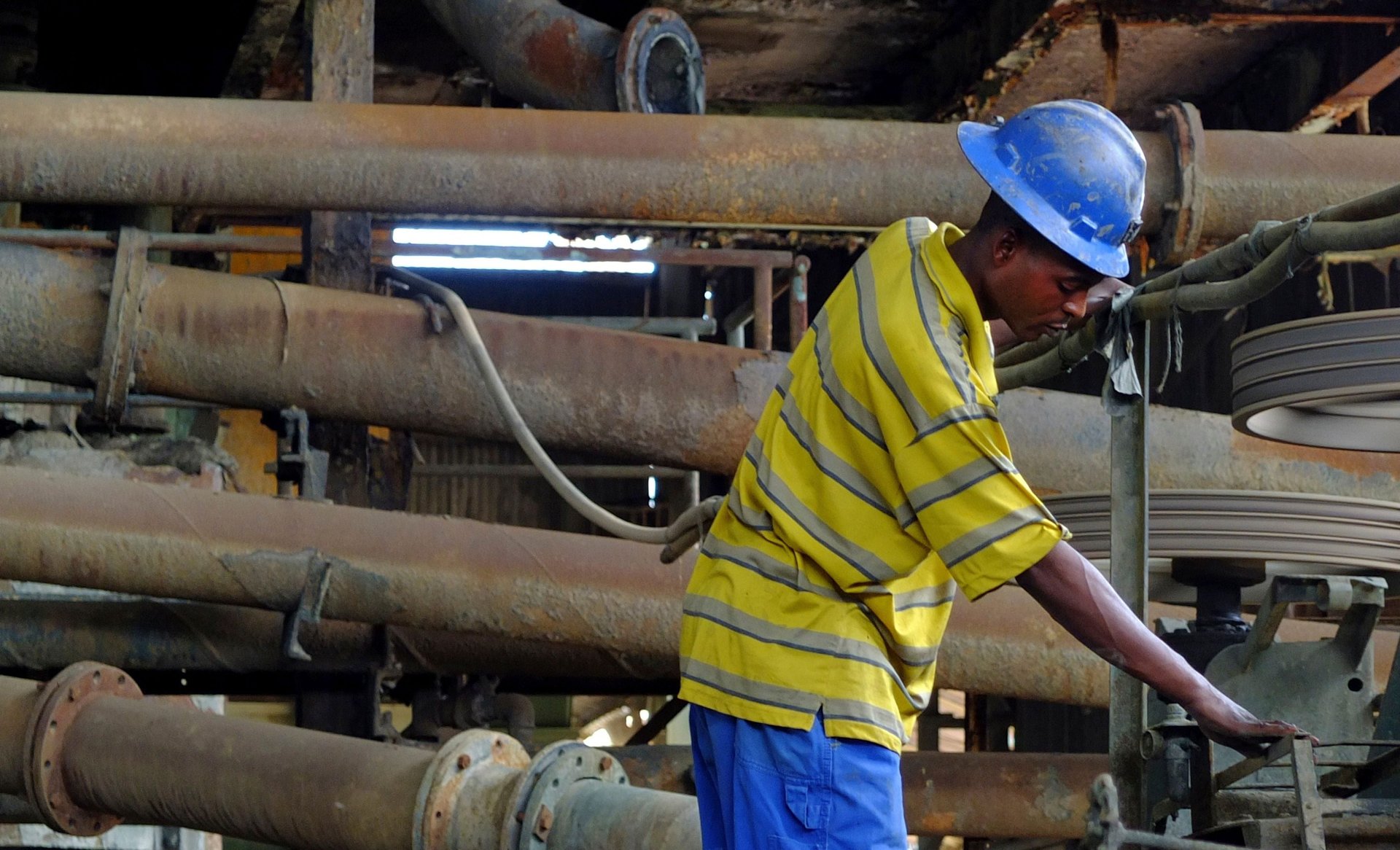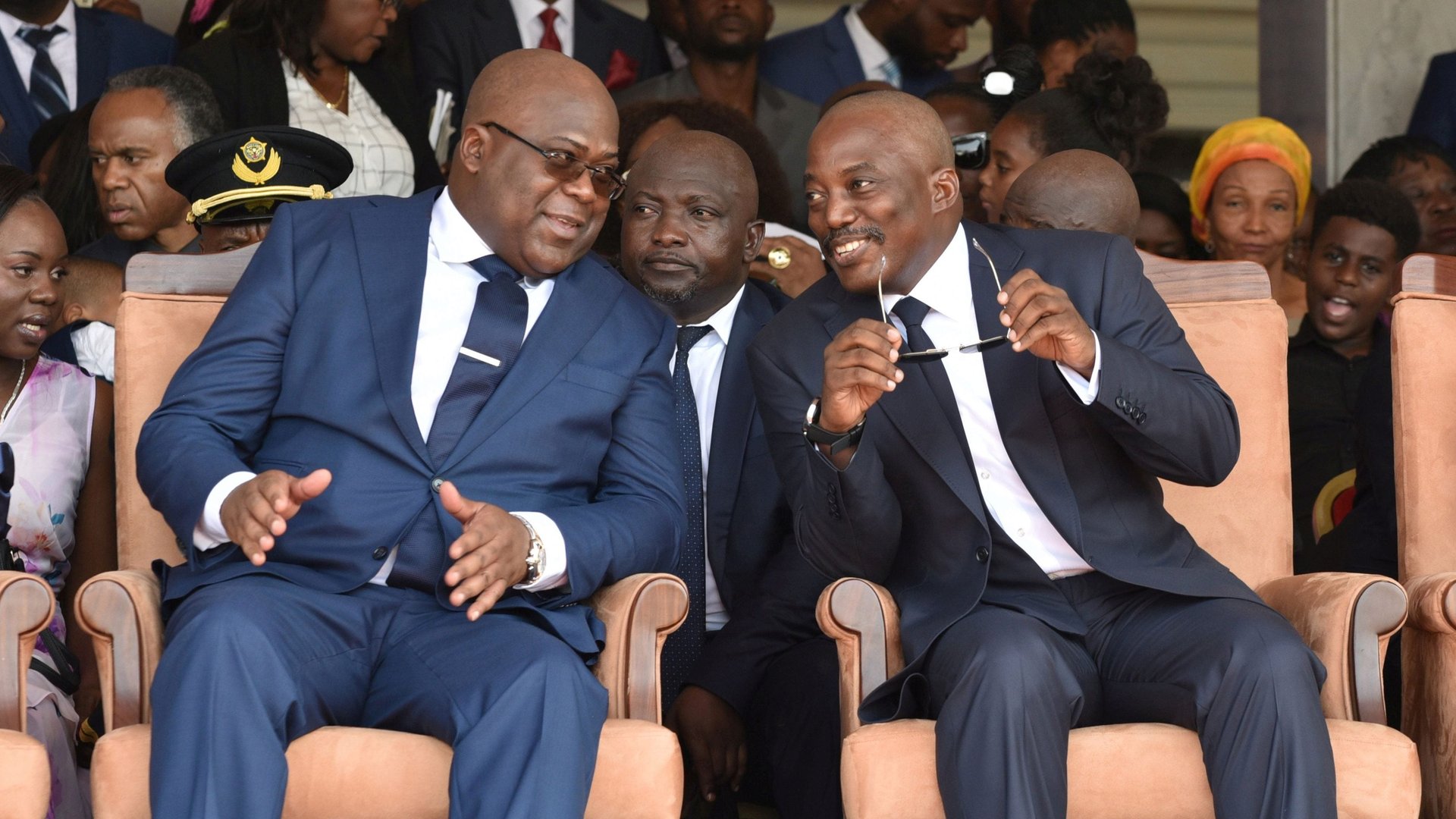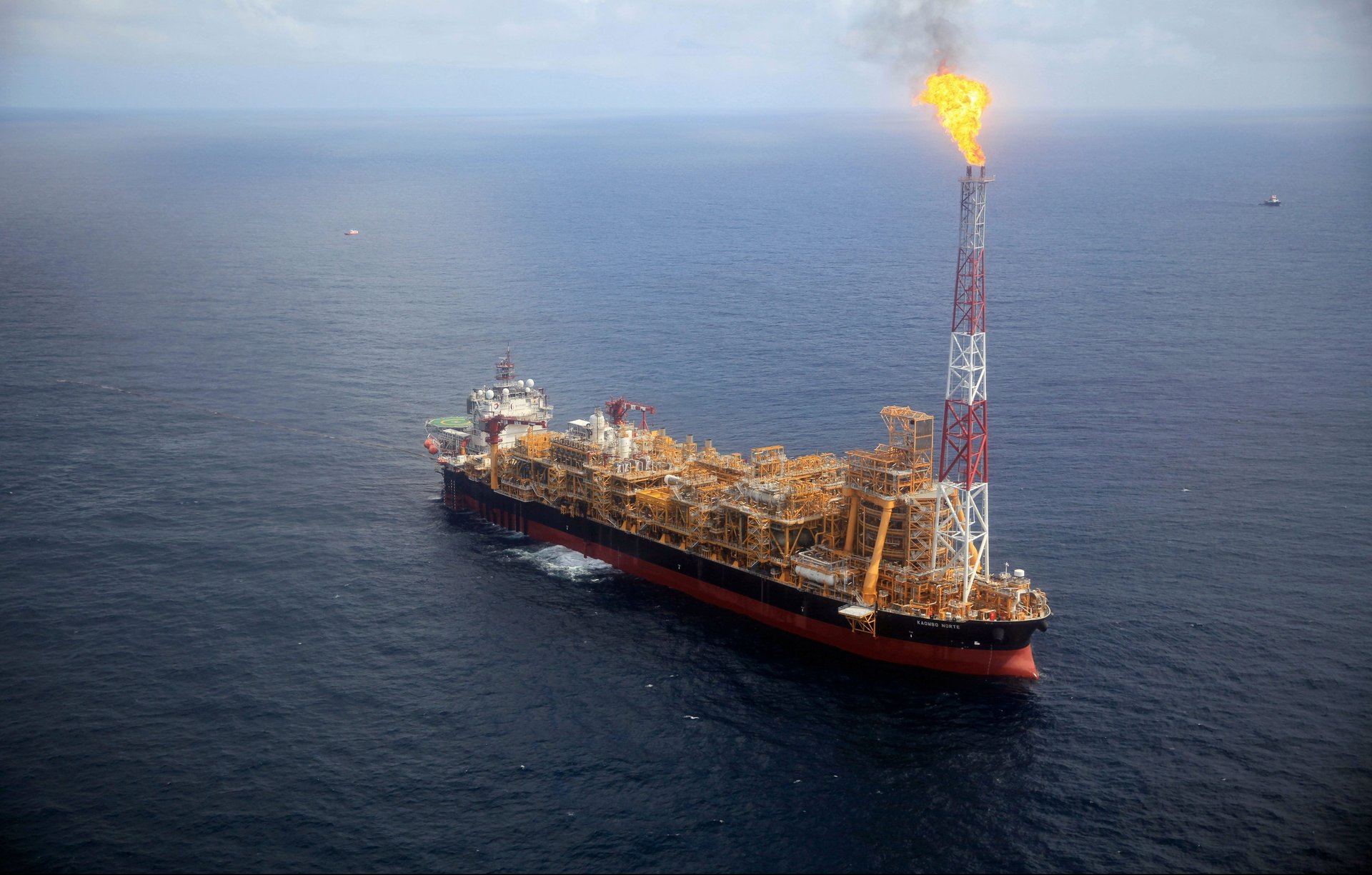Kleptocracies like to plunder oil wealth, but in DR Congo it’s an under-developed bargaining chip
In an office on a busy commercial street in Kinshasa, a range of oil officials are sitting around rather idle. They are geologists, lawyers, economists—a number of them being senior officials. The office itself is thankfully air-conditioned, but furnished with second-hand tables and chairs in various states of disrepair.


In an office on a busy commercial street in Kinshasa, a range of oil officials are sitting around rather idle. They are geologists, lawyers, economists—a number of them being senior officials. The office itself is thankfully air-conditioned, but furnished with second-hand tables and chairs in various states of disrepair.
No one in the group spends much time at the ministry. They are seen as busybodies, enthusiastic experts, getting in the way of graft. The pristinely-suited political appointees, minds set on moneymaking from their posts, chased them from meetings between companies and officials where deals—not always clean—were being struck. Otherwise they were simply not given work. Eventually they stopped going to the office. They still collected salaries, so someone started making them sign in every day. But no one sacks them. They know too much.
They are working on a variety of projects, but none of them hold much chance of realizing their dream: an oil-rich Democratic Republic of Congo. Instead much of their time is spend watching pirated movies on their laptop.
Until January this year, DR Congo had been run for almost twenty years by former president Joseph Kabila. Installed after his father’s assassination, the Kabila regime ran DR Congo as a personal breadbasket, enriching themselves, and maintaining power by re-distributing some of that wealth through political favors. This wealth was particularly derived from mines, particularly supplying the global technology industry with essential raw materials, as well as sating China’s growing need for copper.
But DRC might also be rich with oil. If a range of studies and declarations by companies and the DRC government on the potential of various oil blocks are accurate, DRC’s potential could go beyond 20 billion barrels. Even if these are spurious—which they well might be—geologists agree that there could be a great deal of oil under DRC.
For now, even the government and the companies that have bought blocks don’t know a whole lot for certain about how much there is. This uncertainty alone is strange: why isn’t anyone finding out? If the DRC found this much oil, it would be the second biggest oil state in sub-Saharan Africa, behind only Nigeria (with proven reserves of about 37 billion barrels). It would well outstrip Angola, who currently have 9 billion barrels of proven reserves.
Instead, the DRC’s proven reserves, both onshore and offshore at the tiny patch of coast that connects DRC to the Atlantic, come to a paltry 180 million barrels, feeding production of 25,000 barrels per day. Very little work has been done to look for oil deposits under any of the DRC’s other oil blocks, and no one has got anywhere near pumping any oil.
There are plenty of good reasons for this gap. First, exploring in the Congolese interior, with vast distances, thick equatorial forest, and minimal or absent infrastructure, is tough and expensive, and it would be even harder to get oil out. Without a pipeline export of Congo’s oil doesn’t make economic sense. Just such a pipe project—nicknamed “The Reptilian”—was planned to run 1500 kilometers (930 miles) from fields in country’s heart to the coast, at a cost of several billion dollars. But it went nowhere.
Total, the French oil major, is building a pipeline the other way across Africa, from Uganda’s western oil blocks to the Indian ocean. If the blocks in DRC’s east could plug into this pipeline, their oil wouldn’t have to leave on expensive lorries. Negotiations between the DRC and Uganda have produced no agreements so far. But these kinds of issues have not stopped oil companies and governments before. Oil profits are reason enough to push through.
Our research shows that DRC’s oil sector trundles on without discoveries or production because the Congolese government has no real interest in actively developing the sector. Instead, they have both actively and passively blocked development.
New guy, same game
The main reason for this is that doing so would take time and investment, while political careers in the Congo are short and unstable. Moreover, those in power are also aware that such sources of revenue could end up in opponents’ hands or might have to be extracted in a politically-hostile part of the country. In terms of regime security, it is simply safer not to develop the sector. In this situation, the oil sector is not there to be developed, but to serve as a political reward for regime loyalists.

This is unlikely to change under the new president Felix Tshishekedi, sworn in this January. Former president Kabila’s influence—and incentives—will be retained in the new government. The oil ministry might be given out to political allies as an easy source of cash, much as before, as part of negotiations over power sharing.
Tshishekedi’s own incentives are very similar to Kabila’s in oil matters. His share of power within the coalition relies on raising short-term political cash, for which the signing of oil contracts might be useful. He also does not have a political base in an oil-rich region, and may see enriching such regions as empowering those who question his legitimacy.
Oil at sea
This isn’t just a story of tough-to-extract onshore oil. In theory, the DRC could viably claim a sizeable portion of Angola’s offshore oil, according to the United Nations Convention on the Law of the Sea. These contribute around half of Angolan oil production, and produce between one third and 53% of Angola’s daily production of approximately 1.5 million barrels per day. Were DRC to acquire this maritime territory, and if production in these areas were to continue at current levels, DRC would become the second or third largest oil producer in sub-Saharan Africa, a big leap from its current standing at 12th place. Yet, it is not doing so. The reason here is similar to the one above: it would harm regime interests.
The DRC has left this undersea oil alone because the Kabila regime owed the Angolans for putting them in power in the late 1990s. Jeopardizing Angola’s oil wealth would land them in very hot water, and there might be a new gang running the show. For now, they keep quiet.
Congo’s oil ministers have been political appointments, given permission to strike deals to line their own pockets, with no regard for whether those deals get past signature. Also here, contract signatures mainly serve to make money, rather than to the development of the sector.

Around 2010, the oil ministry signed a raft of agreements with companies as a precursor to contracts, costing hundreds of thousands of dollars each. Many were for the same blocks, and after a year, most had simply been torn up. Similarly, Production Sharing Contracts (PSCs) require companies to pay formal signature bonuses of several million dollars.
But these contracts aren’t reliable: two major contracts held by an international oil company in Congo’s east were torn up and then reassigned a second time, both times as political favours to companies incapable of completing even proper exploration without outside help.
Contracts only seem to happen when immediate incentives are provided, whether carrots or sticks. Two sets of contracts in the country’s central basin sat for a decade without the presidential approval required for most exploration. COMICO, a company part-owned in the UK, secured presidential approval under opaque circumstances, and is assumed by many analysts to have made payments of some kind.
On Thursday (Mar. 7), news broke that an international court ordered DRC to pay DIG oil—a South African oil company—$617 million for failing to honor the contracts it held in the central basin. However, outgoing president Kabila had approved these deals weeks before—the threat of the fine seemingly having played a major role.
Another way in which funds are made is through asking money for meetings in the ministry. The more important the civil servant, the more you pay. And if you want a meeting at a hotel or restaurant, the price is even higher. Usually a core official with the minister’s trust is the gatekeeper. A long-time chief of staff once even published a price list for meetings, reflecting typical pricing. Meeting him cost $6,000 within the ministry, or $9,000 at another location. Discussions with lesser advisors would cost $5,000 to $7,000 according to location—a meeting at a hotel or a restaurant being more expensive.
Ministry officials often cut fishy deals in close connection with the private sector. The country representative of one oil company managed to arrange 7% of an oil contract for his family company, taking that out of the portion usually assigned to the state oil company in such contracts.
In all of this, the thing of value to the government was never the oil itself, but pieces of paper pointing to imaginary lines on the ground, with vague promise of oil. And the ministry really didn’t mind if those promises were ever realized. Partly this is because the minister knows he could be out on his ear tomorrow, and cares instead for lining his pockets now. But also those in the regime who gave him his job and feed him instructions worry about oil fields springing up.
The wrong people and the wrong regions could get rich. Congo’s mining regions would lose their clout, and opposition politicians might raise funds from oil for electoral campaigns—or worse.
Overall, all the regime needs from oil is to let their chosen friends profit, and that is entirely possible without new oil being pumped, or even discovered. Actually developing the oil sector is unnecessary, of little interest, and is potentially even harmful. So nothing gets done.
In the meantime, the oil officials mentioned in the intro, eager to get the oil flowing, continue to sit idle.
Sign up to the Quartz Africa Weekly Brief here for news and analysis on African business, tech and innovation in your inbox